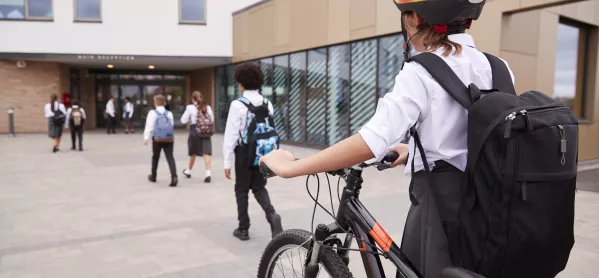‘8 March’ school reopenings: 5 things you need to know

Prime minister Boris Johnson has today set a date of Monday 8 March for when schools could start reopening to more pupils. Here’s what he told MPs in the House of Commons this afternoon:
Coronavirus: The plan for reopening schools
1. Why 8 March?
Boris Johnson explained that 8 March is when the four most vulnerable groups are expected to have developed immunity from the coronavirus because it should be at least three weeks after they will have received the first does of the vaccine.
The prime minster said: “If we achieve our target of vaccinating everyone in the four most vulnerable groups with their first dose by 15 February, and every passing day sees more progress towards that goal, then those groups have developed immunity from the virus.
Boris Johnson: We hope to reopen schools from 8 March
Coronavirus: Primary schools ‘safe’ to open soon, say health experts
School safety: School reopenings ‘will not be straight after half-term’
“About three weeks later, that is by 8 March, we hope it will therefore be safe to begin the reopening of schools … with other economic and social restrictions being removed thereafter, as and when the data permits, then or thereafter.”
2. Wider school reopening is a national priority in easing the lockdown
“The first sign of normality beginning to return should be pupils going back to their classrooms,” said the prime minister.
“Our aim will be to set out a gradual and phased approach towards easing the restrictions in a sustainable way, guided by the principles we’ve observed throughout this pandemic, beginning with the most important principle of all, that reopening schools must be our national priority,” he added.
3. The conditions needed for classrooms to open
The prime minister ruled out any wider reopening of schools immediately after half-term on 22 February, because there was not enough data.
He said: “I know how frustrating that will be for pupils and teachers who want nothing more than to get back to the classroom. And for parents and for carers, who spent so many months juggling their day jobs, not only with with home-schooling, but with meeting the myriad other demands of their children from breakfast until bedtime.”
He said the picture should be “much clearer” by mid-February, and gave an idea of some of the conditions that would need to be met before schools can open.
Mr Johnson said: “By then we will know much more about the effect of vaccines in preventing hospitalisation and deaths using data from the UK but also other nations like Israel, and we will know how successful the restrictions have been in driving down infections.
“We will also know how many people are in hospital with Covid, which we can’t predict with certainty today, so we will then be in a better position to chart a course out of lockdown without risking a further surge that would overwhelm the NHS.”
4. There will be £300 million more catch-up funding
Schools are to receive a further £300 million for catch-up tutoring, according to Mr Johnson, who said the government would also “work in collaboration” with the education sector to develop “specific initiatives for summer schools”.
He said: “We recognise that these extended school closures have had a huge impact on children’s learning, which will take more than a year to make up. So we will work with parents, teachers and schools to develop a long-term plan to make sure pupils have the chance to make up their learning over the course of this Parliament.”
5. Free school meals will continue
The government will also continue to provide free meals for children not in school.
Mr Johnson said: “As we’re extending the period of remote learning beyond the middle of February, I can confirm that the government will prolong arrangements for providing free school meals for those eligible children not in school, including food parcels and the national voucher scheme, until they’ve returned to the classroom.”
You need a Tes subscription to read this article
Subscribe now to read this article and get other subscriber-only content:
- Unlimited access to all Tes magazine content
- Exclusive subscriber-only stories
- Award-winning email newsletters
Already a subscriber? Log in
You need a subscription to read this article
Subscribe now to read this article and get other subscriber-only content, including:
- Unlimited access to all Tes magazine content
- Exclusive subscriber-only stories
- Award-winning email newsletters